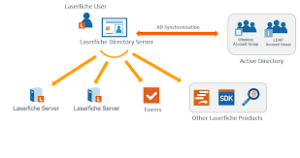In today’s highly competitive business landscape, operational efficiency is not just a goal—it’s a necessity. Businesses that streamline processes, reduce costs, and optimize workflows will thrive, while those struggling to manage operations effectively risk falling behind. Achieving operational efficiency requires adopting technologies that can automate routine tasks, integrate disparate systems, and provide actionable insights into business performance. This is where Microsoft Dynamics 365 comes in.
Dynamics 365 is a comprehensive suite of enterprise resource planning (ERP) and customer relationship management (CRM) applications that help businesses manage various functions such as sales, marketing, customer service, finance, and supply chain operations. Built on a flexible and scalable cloud-based platform, Dynamics 365 allows organizations to unify their business operations, reduce redundancy, and improve communication across departments.
The platform’s ability to deliver real-time data, coupled with advanced analytics, enables decision-makers to respond quickly to market changes and internal operational challenges. Furthermore, with features like workflow automation, predictive analytics, and integration with other Microsoft products (such as Office 365 and Power BI), Dynamics 365 empowers businesses to maintain a high level of productivity while ensuring operational agility.
In this article, we’ll explore ten key ways that Dynamics 365 enhances operational efficiency, from automating routine tasks to ensuring compliance and security, allowing businesses to stay competitive in today’s fast-paced market.
Unifying Business Operations through a Centralized System
For any business, operational inefficiency often stems from siloed systems and fragmented workflows. When various departments like sales, finance, HR, and supply chain management operate on different platforms, the result is slow communication, redundant data entry, and errors. Dynamics 365 solves this problem by creating a unified, centralized platform where all business operations are integrated.
This centralization allows for real-time access to data across departments, eliminating the need for manual synchronization. For instance, sales teams can easily view customer financial information without needing to contact the finance department, while supply chain managers can track inventory levels across multiple locations without switching between different systems.
By providing a single source of truth, Dynamics 365 ensures that data is accurate, consistent, and accessible, which leads to faster decision-making and more efficient workflows. Furthermore, the centralized system enables better collaboration, as employees across departments can work from the same set of information, reducing miscommunication and increasing overall productivity.
Automation of Routine Tasks to Boost Productivity
One of the most significant contributors to inefficiency in many businesses is the time spent on manual, repetitive tasks. Processes such as data entry, invoice generation, order processing, and report creation consume valuable employee hours that could be better spent on more strategic initiatives. Dynamics 365 addresses this by offering robust automation tools that can handle these routine tasks efficiently.
For example, the platform can automate the process of generating and sending invoices to clients based on predefined workflows. It can automatically reorder inventory when levels fall below a certain threshold or notify sales teams when a customer’s contract is nearing renewal. This level of automation reduces human error, ensures tasks are completed on time, and frees up employees to focus on higher-value tasks that require creativity and decision-making.
Moreover, automation in Dynamics 365 is highly customizable. Businesses can create workflows tailored to their unique processes, ensuring that the platform fits their operational needs rather than forcing them to adapt to a rigid system. Over time, the automation of these routine tasks can lead to significant gains in productivity, allowing businesses to scale without increasing labor costs.
Real-Time Data and Analytics for Informed Decision-Making
In the digital age, data is king. However, data is only as valuable as the insights it provides, and businesses that can leverage real-time analytics have a distinct competitive advantage. Dynamics 365’s built-in data analytics tools provide businesses with a clear view of their operations, allowing them to make informed decisions quickly.
For instance, finance teams can monitor cash flow in real-time, sales managers can track performance against targets, and supply chain leaders can forecast demand based on historical trends. Dynamics 365 integrates with Power BI, Microsoft’s powerful business intelligence tool, to deliver advanced reporting and data visualization capabilities. This integration allows companies to track key performance indicators (KPIs) and generate customized reports that highlight trends, potential risks, and opportunities for improvement.
The availability of real-time data also helps businesses respond proactively to changes in the market. Whether it’s adjusting inventory levels to meet sudden demand spikes or reallocating resources to meet project deadlines, the ability to act on up-to-the-minute information ensures that operations run smoothly and efficiently.
Streamlining the Supply Chain for Optimal Performance
Managing the supply chain is a critical component of operational efficiency, especially for companies dealing with physical products. Supply chain disruptions, whether due to stockouts, delivery delays, or inaccurate demand forecasts, can lead to increased costs and lost revenue. Dynamics 365’s Supply Chain Management module offers tools to optimize every stage of the supply chain, from procurement to distribution.
The platform provides end-to-end visibility into the supply chain, allowing managers to monitor inventory levels, track shipments, and manage supplier relationships in real-time. Additionally, its advanced demand forecasting tools use historical data and predictive analytics to help businesses anticipate future demand, ensuring they have the right amount of stock on hand without over- or under-ordering.
Dynamics 365 also helps streamline warehouse operations by automating tasks such as inventory replenishment and order fulfillment. This leads to faster turnaround times, fewer errors, and improved customer satisfaction. In industries where efficiency in the supply chain can make or break profitability, Dynamics 365 gives businesses the tools they need to stay ahead of the competition.
Enhancing Customer Service with Integrated CRM Capabilities
Customer service is a crucial aspect of any business’s operations, and poor customer experiences can directly impact a company’s bottom line. Dynamics 365’s Customer Service module allows businesses to deliver better customer experiences by providing a unified view of each customer’s history, interactions, and preferences.
With this 360-degree customer view, service representatives can quickly resolve issues, personalize interactions, and respond to inquiries without needing to dig through multiple systems. Whether it’s tracking customer complaints, following up on service requests, or managing returns, the CRM capabilities of Dynamics 365 ensure that all customer data is easily accessible and actionable.
Furthermore, automated workflows within the platform can be set up to send follow-up emails, escalate unresolved issues, or even trigger service tickets based on predefined criteria. This not only ensures that customers receive timely responses but also improves overall service efficiency by automating routine processes. As a result, businesses can reduce response times, increase first-contact resolution rates, and enhance customer satisfaction—all of which contribute to operational efficiency.
Improving Financial Management through Advanced ERP Features
Managing a company’s finances effectively is essential for maintaining profitability and ensuring long-term success. Dynamics 365’s Finance and Operations module provides businesses with comprehensive financial management tools that streamline accounting processes, improve cash flow visibility, and support more accurate financial forecasting.
The platform automates many accounting tasks, such as reconciling bank accounts, processing payments, and generating financial reports. It also supports multi-currency transactions, making it ideal for companies that operate globally. Additionally, Dynamics 365 integrates with Excel and other Microsoft tools, enabling finance teams to create customized financial reports, analyze data in detail, and make informed budgeting decisions.
One of the most powerful features of Dynamics 365 is its ability to provide real-time visibility into financial performance. Business leaders can track expenses, monitor revenue trends, and identify areas where cost savings can be achieved, all from a single platform. By improving the accuracy and timeliness of financial data, Dynamics 365 helps businesses avoid costly mistakes and ensure that their financial operations are running efficiently.
Scalability and Flexibility for Growing Businesses
As businesses grow, their operational needs change. Dynamics 365 is designed with scalability in mind, allowing companies to expand their operations without the need for significant infrastructure changes. The platform’s modular design means businesses can start with the applications they need most, such as finance or sales, and add additional modules like marketing or HR as they grow.
This flexibility is particularly valuable for businesses that are expanding into new markets or launching new products. Dynamics 365 can easily accommodate increased transaction volumes, new user roles, and additional workflows, ensuring that operational efficiency is maintained even as the business evolves.
Moreover, because Dynamics 365 is cloud-based, businesses can access the platform from anywhere, enabling remote teams to collaborate effectively and manage operations regardless of their physical location. This makes it an ideal solution for businesses looking to maintain agility and efficiency in a globalized market.
Enhancing Collaboration with Microsoft Integration
One of the standout features of Dynamics 365 is its seamless integration with other Microsoft tools such as Office 365, SharePoint, and Microsoft Teams. This integration creates a highly collaborative environment, allowing employees to work together more effectively across departments and locations.
For example, sales teams can use Teams to hold virtual meetings with prospects and share key data directly from Dynamics 365 without switching between platforms. Employees can collaborate on documents using SharePoint, track changes, and store important files, all of which are accessible from within Dynamics 365.
This level of integration saves time, reduces duplication of efforts, and ensures that all employees are working from the same set of information. In fast-paced environments, having integrated tools that foster collaboration can significantly improve operational efficiency, as it reduces miscommunication and ensures that projects are completed on time.
Ensuring Compliance and Security with Built-In Features
In today’s regulatory landscape, ensuring compliance with industry standards and protecting sensitive data is crucial for any business. Dynamics 365 includes a wide range of security and compliance features that help businesses meet these requirements while maintaining operational efficiency.
For example, Dynamics 365 supports GDPR compliance by offering tools to manage customer data securely and provides audit trails that allow businesses to track data access and usage. Role-based security features ensure that only authorized personnel have access to sensitive information, reducing the risk of data breaches.
Additionally, because Dynamics 365 is hosted on Microsoft Azure, businesses benefit from the same enterprise-grade security infrastructure that protects Microsoft’s own data. This includes built-in encryption, multi-factor authentication, and regular security updates, ensuring that business operations are protected from both internal and external threats.
By ensuring compliance and protecting data, Dynamics 365 enables businesses to focus on their core operations without worrying about security risks or regulatory challenges. This not only safeguards the business but also improves operational efficiency by reducing the administrative burden associated with managing compliance.
Driving Innovation through AI and Machine Learning
Finally, Dynamics 365’s integration of artificial intelligence (AI) and machine learning (ML) capabilities gives businesses the ability to innovate and optimize their operations in ways that were previously impossible. AI-driven insights can help businesses identify patterns in customer behavior, predict demand trends, and optimize supply chain operations.
For example, the platform’s AI-powered sales assistant can analyze a customer’s purchase history and suggest personalised product recommendations, improving the efficiency of sales teams. Machine learning algorithms can also be used to forecast inventory needs, reduce waste, and streamline production processes.
By leveraging AI and ML, Dynamics 365 allows businesses to stay ahead of the competition and continuously improve their operational efficiency. These advanced technologies enable businesses to automate decision-making processes, reduce the need for manual intervention, and optimise operations in real-time.
Conclusion
In today’s fast-paced business environment, achieving operational efficiency is critical for success. Microsoft Dynamics 365 provides businesses with the tools they need to streamline their operations, from automating routine tasks to providing real-time data for informed decision-making. Its integration with other Microsoft products, coupled with advanced AI capabilities, ensures that businesses can maintain efficiency while remaining agile and responsive to market changes.
By unifying business operations, improving collaboration, and enhancing customer service, Dynamics 365 enables businesses to optimize their workflows, reduce costs, and improve overall productivity. For businesses looking to stay competitive in the digital age, adopting Dynamics 365 is a strategic move that will drive long-term success and operational excellence.








